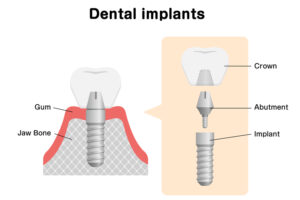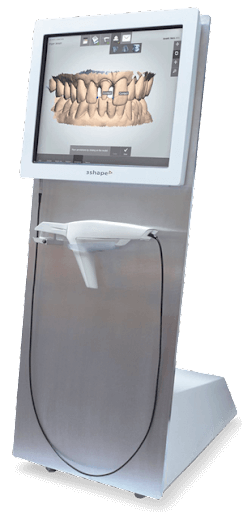A small missing tooth can have a big impact on your smile. In shorter lengths like this, dental implants have been revolutionized to find a solution for this. Although traditional dental implants have paved the way in restoring missing teeth, mini dental implants have also come to light in the field of dentistry. Mini dental implants operate similarly to traditional dental implants by inserting a titanium body into the patient’s jawbone to provide support and stability for replacement teeth. However, the defining feature of mini dental implants is their reduced size. But the thing is, not every patient is suitable for this kind of dental procedure. That’s why we are here to give some insights on how to know if your patient is eligible for mini dental implants. Continue reading to see if it is possible for your patient to undergo this treatment.
Sufficient Bone Density

One of the primary considerations for determining a patient’s eligibility for mini dental implants is the density and volume of their jawbone. Since MDIs have a smaller diameter, they require a certain level of bone density to provide adequate stability and support. If a patient has significant bone loss or insufficient bone density in the jaw, traditional implants may be a more suitable option.
Tooth Replacement
Mini dental implants are commonly used to stabilize dentures, particularly in cases where the patient has inadequate bone support. If a patient is seeking a fixed crown or bridge restoration, traditional implants are generally preferred due to their larger size and increased stability. The specific restoration required plays a crucial role in determining the suitability of MDIs for a patient.
Oral Health and Overall Health
Before considering mini dental implants, it is essential to assess a patient’s oral health and overall medical condition. Patients with untreated gum disease or active oral infections may need to undergo treatment and achieve oral health stability before proceeding with implant placement. Additionally, certain medical conditions such as uncontrolled diabetes or compromised immune function may affect the success of dental implant procedures.
Smoking and Tobacco Use
Smoking and tobacco use can significantly impact the success of dental implant procedures. Nicotine restricts blood flow, impairs healing, and increases the risk of implant failure. Patients who smoke or use tobacco products are generally advised to quit or reduce their usage before undergoing any implant surgery, whether it be traditional implants or mini dental implants.
Patient Expectations and Lifestyle
Understanding the patient’s expectations and lifestyle is crucial in determining the most appropriate treatment option. MDIs offer a faster and less invasive solution, making them suitable for patients who prefer a shorter treatment timeline or have concerns about surgical procedures. Additionally, patients who are unwilling or unable to undergo extensive bone grafting procedures may find MDIs a viable alternative.
While mini dental implants have become a popular choice for many patients, not everyone is an ideal candidate for this treatment option. A thorough evaluation by a qualified dental professional is necessary to assess a patient’s eligibility for MDIs and provide the most appropriate treatment recommendation. At Next Dental Lab, we prioritize the smile of your patients. Feel free to reach out to us and get the best dental products and lab services.

